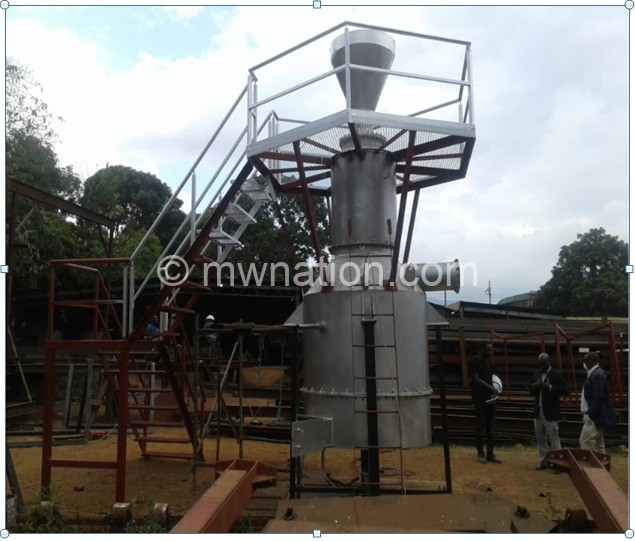Must delves into power project
Malawi University of Science and Technology (Must) has delved into electricity generation by producing 60 kilowatts (kW) from agricultural wastes to power 400 households.
The public university, with a grant worth $30 000 (about K23 million) from the Science Granting Councils Initiative through the National Council for Science and Technology, has since developed a biomass gasification plant, which will utilise rice husks to produce electricity.

Must head of Department of Energy Resources Management John Taulo said in an interview that in conceiving the project, the university was compelled to address power supply challenges through rice husks, which pollute the environment yet they can be put to good use.
He said: “We have chosen rice husks for a reason. It is a menace as it causes environmental problems in terms of disposal yet that can be controlled.
“We did a baseline study in the country’s six major rice-growing districts. Our findings revealed that current production of rice is between 140 000 and 150 000 metric tonnes per annum and this is significant to generate power.”
Taulo said due to logistical reasons, in the initial phase, Must has settled for Phalombe District among the six riceproducing districts in the country to cut the costs and address rampant deforestation issues.
“Phalombe is closer to Must, but we also looked at the extent of deforestation happening in the district in search of energy.
“We, therefore, considered Wowo Cluster in Traditional Authority Mkhulambe, which is also a high producer of rice. As we will be helping to conserve forests, we will also help to empower women and youths economically who will be providing us rice husks,” he said.
To produce electricity, the technology is designed to go through four processes that will take place simultaneously.
The husks will be fed in the rector to dry off the moisture. After that, several processes will be done within the system which will later produce electricity.
In terms of specific energy production, one kilogramme (kg) of rice husks, according to Taulo, will be producing one kilowatt or unit of electricity.
“We are looking at feeding around 60 kg per hour to produce the power intended to power 400 households in our pilot phase,” he said.
Malawi is among countries in Africa and the world facing power challenges, with figures from the 2018 Population and Housing Census showing that electricity penetration is at a paltry 11 percent out of its 17.5 million people.
But if implemented, the project would help to expand the country’s energy sources thus addressing power supply and production issues, which is in line with the revised National Energy Policy.
The policy, a roadmap for global goals to provide access to sustainable energy for all by 2030, projects electricity coverage reaching 30 percent by 2040, a target experts argue could be achievable if the country
invests in power generation as well as expanding energy mix.
But to enhance the project, Taulo said Must requires an additional K60 million.
“We do not have adequate funding for the transmission and distribution part, which will require about K20 million per kilometre. Our interest was to transmit the power to about three kilometres to cover the radius that we are looking at which means we need K60 million to complete the project,” he said.
Energy expert and environmental consultant Grain Malunga has applauded Must for the innovation, saying if well nurtured and supported, it can promote economic development.
He said: “That the country is constrained with energy issues is not news yet electricity is key in the development of any nation. To see our universities leading in efforts is thus pleasing.
“This is a good project which could changes people’s lives. Going by their design and explanation, the project is quite viable and a stepping stone to the realisation of government goals and agenda on energy provision.”
The country’s electricity largely comes from hydro and 90 percent of it is produced along the Shire River.
The country’s installed electricity capacity is at 361 megawatts (MW) despite suppressed demand being close to 600MW.





